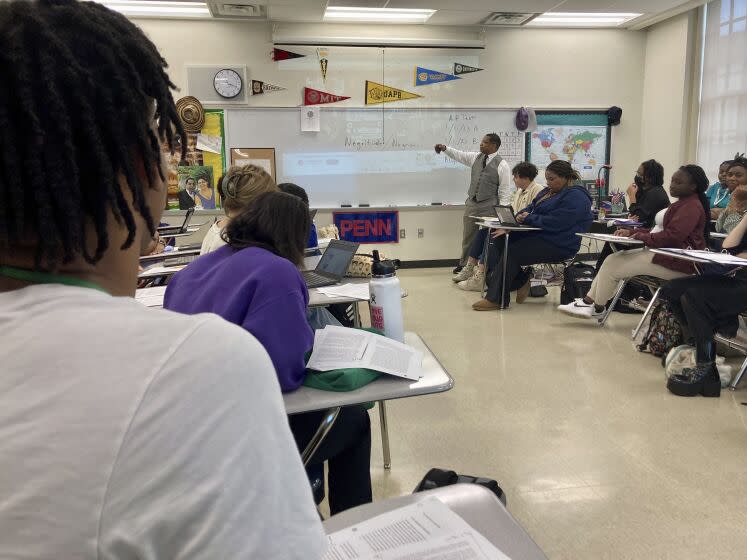Letters to the Editor: What's history class for, anyway?

To the editor: The only thing I would add to Nicholas Goldberg’s column about the need for students to learn U.S. history is a focus on recent history. It’s my understanding that many of today’s high school U.S. history classes barely get to the end of World War II. They run out of time to continue telling the chronological story, and college-bound students are not typically encouraged to take follow-up modern U.S. history classes.
The seeds planted during the period between 1945 and the present have exploded into many of the issues we have to deal with today. How can we expect an informed electorate without the basic facts about how we got here?
Jon Hookstratten, Los Angeles
..
To the editor: Ideally, the average citizen would be able to name their state representative, list the original 13 colonies and debate complex topics in history. Ideally, we would be extremely knowledgeable of the social sciences and fully capable in our chosen professions.
However, as we all know, we do not live in an ideal world. Human beings do not have the time, need or bandwidth to know every perspective on history or political theory.
Specialization in the social sciences is not necessary or possible for the majority. People have to focus on specific skills in order for our society to function. The time necessary to learn and maintain skills in most fields results in other knowledge being unlearned or forgotten.
Tyler Gomez, Apple Valley
..
To the editor: History is so interesting because learning about famous and everyday people alongside nations, civilizations and organizations — and their successes and failures — can be important and meaningful. Learning about history gives people perspective as well as lessons for the present and future.
Sometimes researching their family gives someone a very personal perspective about themselves and a purpose to continue to learn, grow and make a meaningful contribution to the world. The important history skills of research, compare and contrast, critical thinking, using evidence to support a viewpoint as well as decision making are all important tools to use in law, medicine, business, education, science, law enforcement, jury duty and everyday life.
James Berger, Torrance
The author was an LAUSD history teacher and a history coach at UCLA Center X.
This story originally appeared in Los Angeles Times.

